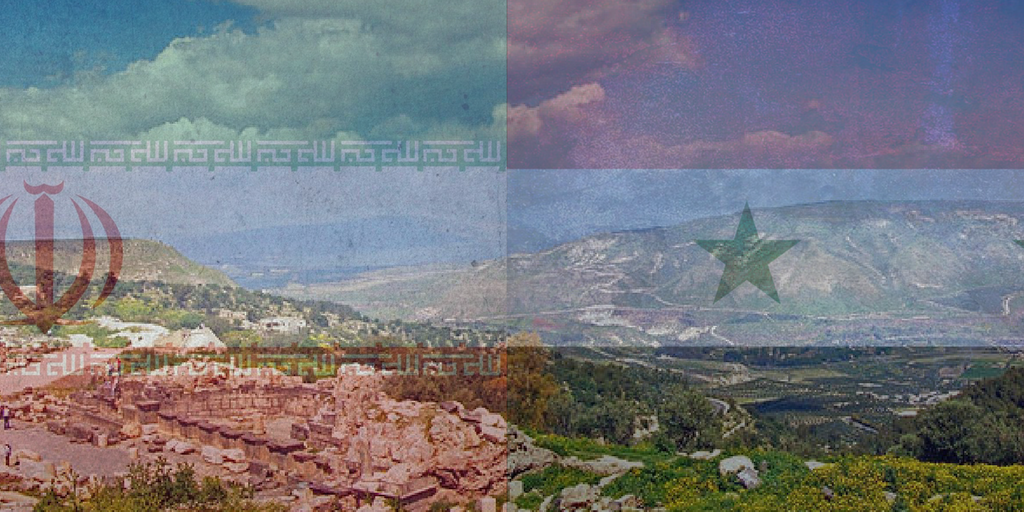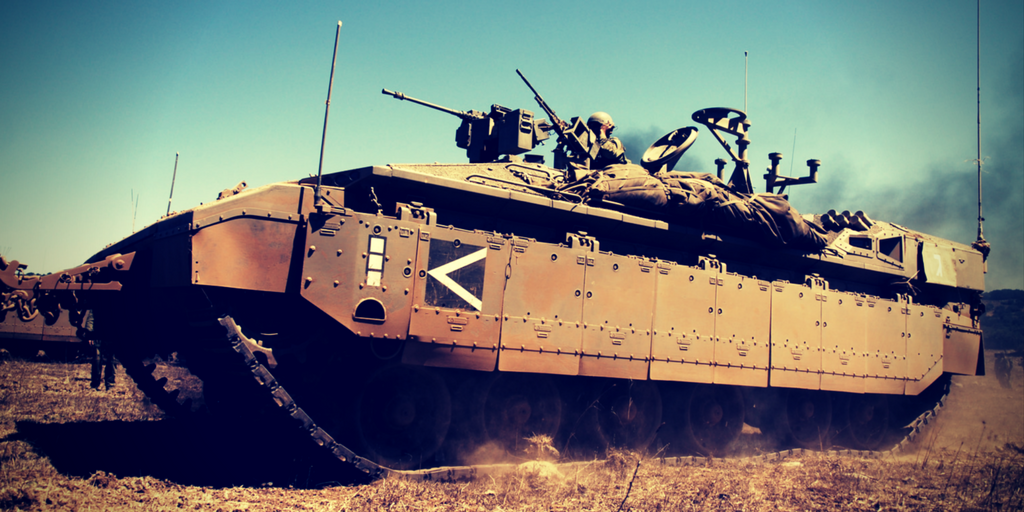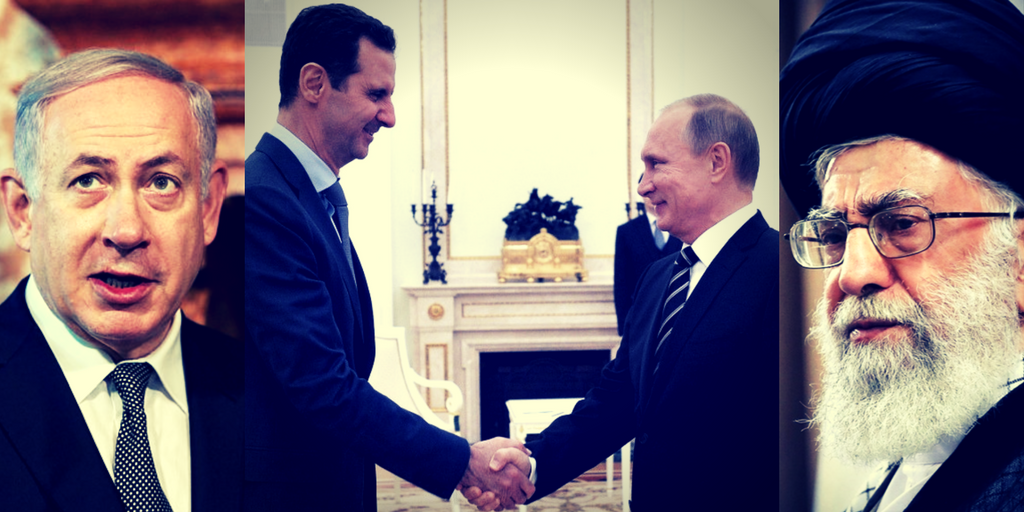Only by resisting territorial concessions on the Golan, Israel prevented deployment of the Iranian Revolutionary Guards on the fringes of the Galilee; only by resisting territorial concessions in the “West Bank” can Israel prevent them from deploying on the fringes of Greater Tel Aviv.
Israel has a strategic interest in disassociating Syria from the extremist axis that Iran is leading. Syria is not lost, Assad is western educated and is not a religious man. He can still join a moderate grouping. – Lt. Gen. Gabi Ashkenazi, Chief of Staff of IDF, Nov 13, 2009.
…we should not belittle the signals of peace coming from Syria. – Ehud Barak, Israeli Defense Minister, Nov 13, 2009.
Syria is the key to regional change for us. If I was prime minister, I would pin all my hopes on Syria.” – The late Binyamin Ben-Eliezer, former Israeli Defense Minister (2001-2002), May 23, 2010.
Just how appallingly wrong these assessments by the most senior echelons of the Israeli security establishment proved to be was driven home by a recent BBC report, indicating that the Iranian military is engaged in the construction of what appears to be a permanent military base in Syria. But more on these—and other—disturbing lapses in judgment a little later.
Permanent Iranian presence in Syria?
Based on satellite images commissioned by the BBC, the report suggests extensive ongoing construction between January and October this year, just outside a site used by the Syrian army near the town of El-Kiswah, 14 km (8 miles) south of Damascus.
It comes on the heels of evermore disturbing accounts of the increasingly pervasive presence of Iranian forces throughout Syria – with Russian endorsement and US acquiescence – together with growing concern that Tehran will soon attempt to deploy both air and naval forces, including submarines and set up weapons production plants to supply its Lebanese proxy, Hezbollah.
In the discussion of the ramifications of these revelations, attention appeared to focus mainly on two cardinal issues: (a) The significance for the completion of the “Shi’ite arc of influence”, stretching from east of the Persian Gulf to the Mediterranean and the creation of a land-based logistical supply line from Iran to Hezbollah in Lebanon; and (b) the stern warnings issued by Israel that it would not permit an Iranian takeover of Syria, hinting that it would be prepared to use military force to prevent this.
However, there is another vital element germane to the expanding Iranian military presence in Syria—and one that has received remarkably little media attention. It is, however, one whose relevance Israel will ignore at its peril.
Inconvenient but incontrovertible fact
After all, as ominous as the current Iranian military deployment in Syria is, it might well have been far more menacing. Indeed, the fact that the Iranian Revolutionary Guard is not perched on the Golan Heights, overlooking the Sea of Galilee, is solely because Israel did not fall prey to the seductive temptation of the land-for-peace formula, as urged by many, in both the international community and in its own security establishment (see introductory excerpts)—and did not cede the strategic plateau that commands the approaches to the entire north of the country.
One can only shudder with dread at the thought of the perilous predicament the country would be in, had it heeded the call from the allegedly “enlightened and progressive” voices, who – up until the gory events of the Syrian civil war that erupted in 2011—hailed the British trained doctor, Bashar al-Assad, as a moderate reformer, with whom a durable peace deal could be cut – f only an intransigent Israel would yield the Golan to his regime.
Indeed, it is an inconvenient—albeit incontrovertible—fact that every time Israel has relinquished/abandoned territory, to Arab control, that territory has – usually sooner rather than later – become a platform from which to launch lethal attacks against Israel – almost immediately in Gaza; within months in Judea-Samaria; within years in south Lebanon and after several decades in Sinai, now descending into the depravity and brutality of a Jihadi-controlled no-man’s land—with no good options on the horizon.
This is something Israeli policy makers dare not disregard. For as dangerous and detrimental as the outcomes of previous withdrawals proved to be, they are likely to pale into insignificance compared to consequences of territorial concession in Judea-Samara (a.k.a. the “West Bank”).
Indeed, even the Golan, with all its vital strategic significance, cannot match the importance of the highlands of Judea-Samaria, commanding Israel’s urban megalopolis in the coastal plain. As I have pointed out elsewhere, any forces deployed on these highlands command all of the following: major airfields (civilian and military) including the country’s only international airport; major sea ports and naval bases; vital infrastructure installations (power transmission, water systems, and communication networks); main land transport routes (road and rail); principal power plants; the national parliament and most government ministries; crucial centers of civilian administration and military command; and 80% of the civilian population and the commercial activity in the country.
Significantly, all of these strategic objectives will be within easy range of weapons being used today against Israel from territories previously relinquished to Arab control.
Compounding the gravity of any threat entailed in Israel yielding sizeable portions of Judea-Samaria to the Palestinian-Arabs are reports of renewed ties between Iran and Hamas, purported to be “stronger than ever.”
An Iranian proxy over-looking Tel Aviv?
Addressing journalists in Gaza last August, Hamas leader, Yehiyeh Sinwar declared that the terror group had restored relations with Iran after a five-year rift, due to Hamas’s refusal to support Assad, and is using its newfound financial and military aid to gear up for new hostilities against Israel. According to Sinwar, “Today, the relationship with Iran is excellent, or very excellent”, adding that Iran is “the largest backer financially and militarily” of the organization’s military wing.
Clearly, were Israel to withdraw from Judea-Samaria, there is little that it could do to curtail the spread of Iranian influence. Indeed, without the IDF to prop up the corrupt kleptocracy of Fatah, it is more than likely that Hamas, increasingly an Iranian proxy in the mold of Hezbollah—despite being on opposite sides of the Sunni-Shia divide—could mount an effective challenge for power. This could be done either via the ballot (a recent Palestinian poll shows that Hamas’s Ismail Haniyeh would trounce Fatah’s Mahmoud Abbas) or by the bullet—as it did in in Gaza in 2007, and could well do again in Judea-Samaria, especially if bolstered by Iranian backing
Accordingly, just as it was only Israel’s resistance to territorial concession on the Golan that prevented the deployment of Iranian Revolutionary Guards on the fringes of the Galilee, so only by resisting territorial concessions in the “West Bank” can Israel prevent Iranian Revolutionary Guards (or any other Jihadi elements) from deploying on the fringes of Greater Tel Aviv.
Assessing new “peace initiatives”: Rank is no recommendation
These are the grim realities that any future “peace initiative” must take into consideration.
This caveat takes on special significance in light of rumors that a new “peace” initiative is currently brewing within the Trump administration, seemingly enamored with the allure of cutting “the ultimate deal”.
In this regard, Israel must internalize the lessons of the past and robustly resist pressures to relinquish further territory to Arab control. In particular, it must be wary of counsel from individuals and organizations, who have demonstrated, consistently and conclusively that—no matter what their past experience and seniority—their judgement cannot be trusted (see introductory excerpts). After all, as the past clearly indicates, when assessing such initiatives, rank is rarely any recommendation.
Indeed, not only have the “top brass” of Israel’s security establishment been hopelessly and hazardously wrong in appraising Assad’s role as a peace partner, they have been equally wrong in predicting his imminent fall – see for example here, here, here, here, here and here.
Israel can ill-afford such lapses in judgement when it comes to making fateful decisions regarding concessions in Judea-Samaria that would critically imperil the vast majority of the nation’s population.
With this in mind, it cannot for a moment forget what–but for the grace of God—our fate in the Golan would have been.








